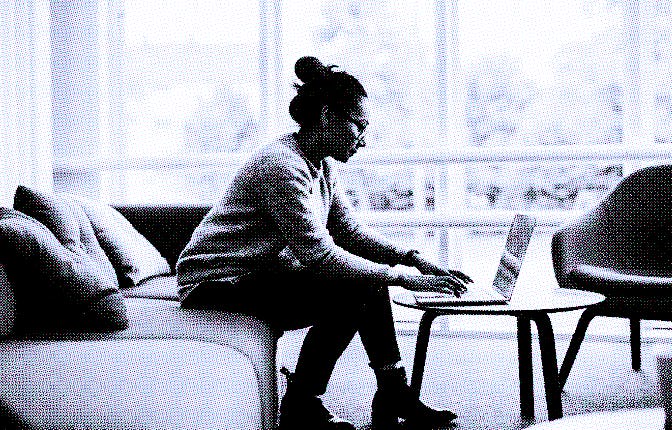More employers are secretly monitoring their employees
For many workers, the sense of agency that comes with WFH is a mirage.

Working from home often gives me a sense of freedom and independence. Sure, sometimes I miss water cooler gossip and the camaraderie of co-working, but I really love never having to worry about my sometimes NSFW lunch break scrolling. Unfortunately, for many workers, the sense of agency that comes with WFH is something of a mirage, because more and more employers are secretly monitoring their employees at home.
According to new data released this week by software company VMWare, 70% of employers surveyed were either already using or were planning on using monitoring technology to track their employees. The same report found that 24% of employees didn’t know whether their employers were using tracking software or not, which is kind of terrifying. It’s one thing to be aware that your boss is keeping tabs on your productivity, but it’s quite another for a company to keep tabs on you without your knowledge or consent.
I want to believe that the number of organizations willing to spy on their workers is pretty small, but unfortunately, that doesn’t seem to be the case. The practice of monitoring seems to be pretty widespread since the survey included 7,600 respondents around the world, consisting of both employers and employees in companies that employ 500 or more people.
Not only that, but this study isn’t the first of its kind. Since the beginning of the pandemic, there has been a massive increase in the demand for monitoring software and a subsequent rash of research on the ways that companies are watching workers at home. Also, employers seem to know their behavior is questionable. In another study, which surveyed 2,000 employers who had employees working in a hybrid capacity, 83% of employers admitted that monitoring is ethically questionable, but 78% of employers in the same study said they were doing it anyway.
There are several ways that employers are able to use technology to monitor employees at home. Mostly, what seems to be happening is that companies install tracking software on company-owned computers that workers use at home, LA Times reported. According to the study, this software is able to more than just track email and web browsing. Up to 28% of employers admitted that they were monitoring people’s webcams. Um, yeah. That basically means that your boss has a camera installed in your home. Not creepy at all.
And even if employees know that their work is being monitored, they may not be privy to all the details. “There is a significant gap between what employers are actively monitoring and what employees think their employers are monitoring,” a representative of ExpressVPN (the virtual private network service that conducted one of the most recent studies on monitoring) told LA Times.
Businesses often justify surveillance using the logic that it helps employee productivity, but this argument falls flat given that employee productivity is higher than ever since the pandemic started, Forbes reported. What’s not improving is trust between workers and their employees, and worker advocates are concerned that all this monitoring could be detrimental to peoples’ jobs — and lives. “A moment’s pause or tiny misstep can now be detected by the employer,” Irene Tung, a policy analyst at the National Employment Law Project, told LA Times.
Not only does all this Big Brother shit completely squig me out, it also seems really short-sighted. The importance of intellectual work — and therefore intellectual workers — is on the rise. And those of us who think and write for a living need not just the freedom to go pantsless in the privacy of our own homes, we also need to be able to make mistakes — and learn from them — without fear of losing our jobs.